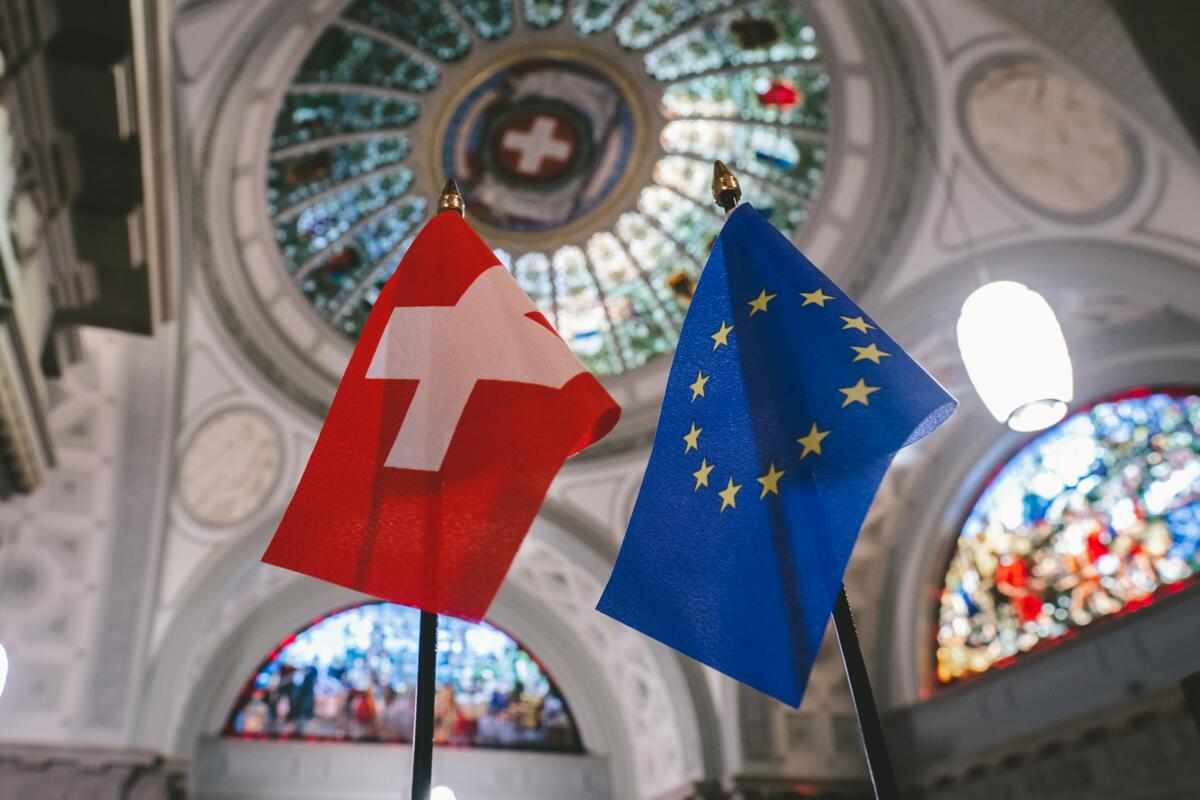Swiss nationals consider neutrality an integral part of their identity and origin; historically, neutrality has been essential for Switzerland's security and foreign policy.

Swiss nationals consider neutrality an integral part of their identity and origin; historically, neutrality has been essential for Switzerland's security and foreign policy.
Russia's military attack on Ukraine puts Switzerland's neutral status to the test. Some Swiss MPs even suggest a referendum so that the citizens can decide on the question of neutrality. The debate comes at the same time when Finland and Sweden, two countries proud of their long history of military non-alignment, applied to join NATO.
Since the beginning of the Ukrainian war, Switzerland has firmly condemned the military attack on Ukraine and has adopted the EU sanctions against Russia.
Swiss President Ignazio Cassis explained that the Federal Council adopted the EU sanctions on the ground that Russia massively violated elementary norms of international law and that Switzerland stands for democratic values and human rights. He argued that both reasons are consistent with the law of neutrality and the national neutrality policy.
From a policy point of view, Switzerland has used neutrality as an effective instrument for pursuing the country's interests and safeguarding its security and welfare. The country's permanent and armed neutrality is internationally recognized and well-regarded; it also helped build Switzerland's credibility as a facilitator and mediator in peace-building initiatives.
From a legal perspective, the law of neutrality is enshrined in the 1907 Hague Conventions, ratified by Switzerland in 1910, which define the duties (no participation in international armed conflicts, ensuring the inviolability of its own territory, not joining military alliances in peacetime) and rights of a neutral state (inviolability of its territory, self-defense, diplomacy and trade).
Hot wars, cold wars, new wars
In two previous international armed conflicts, Kosovo (1999) and Iraq (2003), Switzerland applied the law of neutrality by participating in the international peacekeeping activities in Kosovo only after the UN issued a mandate for combat operations; and by not allowing warring parties to fly over its territory and by prohibiting exports of war material and services during the Iraq war.
So, the recent adoptions of sanctions on Russia appear to be consistent with both the neutrality law and the neutrality policy.
However, the fundamental question of the relevance of neutrality in an age of asymmetric conflicts persists. In fact, the ETH Center of Security Studies argued that the importance of neutrality's protective purpose diminished during the Cold War and diminished even further since the terroristic attacks of 9/11, which showed the rising threat to national security posed by non-state national groups and terroristic movements.
The Ukraine war has also invigorated popular support for helping Ukrainian citizens and even for closer ties with NATO. The Swiss defense ministry is drawing up a report on security options that include joint military exercises with NATO and meetings between Swiss and NATO officials, to be presented to the Swiss cabinet in September.
Joining NATO would be a seismic shift for Switzerland, and it is unlikely to happen, as we will argue below. However, supporting NATO in the Ukrainian war is likely to happen when considering the desires that are politically important or, simply, what "makes Swiss people tick" on neutrality.
First, Swiss national security and military forces are benefiting from a close partnership with NATO and the US, the so-called interoperability, in the field of cybersecurity and defense - as, for instance, represented by the recent purchase of F-35 fighter jets as well as of air defense systems from the US.
Second, Switzerland will maintain its neutrality as a minimum because it is an integral part of its political identity. As we let political thinking penetrate more deeply into the springs of human action, it is scarcely possible to deny the importance of vanity when Swiss citizens choose to keep Switzerland neutral. Even more so now, as the party of neutral countries has become even more exclusive since Finland and Sweden joined NATO.
On the other hand, the human love of excitement may push Swiss citizens to lean closer to NATO. Bertrand Russell argued that the love of excitement results from our mental makeup adapted to the stage when men lived by hunting. When a primitive man spent a long day stalking a deer with the hope of dinner, and at the end of the day, his bones aching, he had dinner and went to bed, and he had no time or energy for boredom. Moreover, the high-quality standards of the Swiss lifestyle, combined with its beautiful landscapes, seem to be designed to deceive the Swiss citizens into a contemplative life constellated by leisurely sports activities. Even De Niro complains to an astonished Federer: "You've got your mountains, your ski resorts, your charming little towns, your green valleys. There's no drama. No drama at all! (…) I need an edge—conflict jeopardy." And lastly De Niro cuts the deal by saying, “(…) Maybe call Hanks.“
The Swiss foreign-policy platform of strict neutrality has become less appropriate in the post-cold-war world order, so Switzerland has been forced to re-interpret its neutrality policy in light of the Ukrainian conflict.
And if Roger has to convince Robert to move to Switzerland he may have to convince his fellow Swiss citizens to indulge in less innocent outlets for their unused physical energies and instead lean towards the very human love of excitement.

